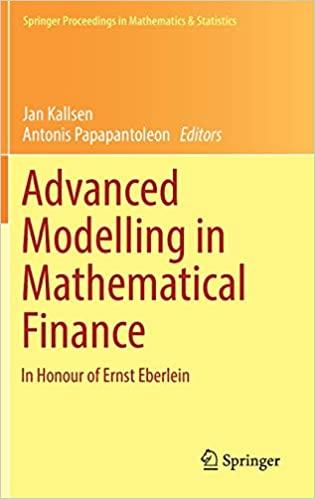Answered step by step
Verified Expert Solution
Question
1 Approved Answer
Hello Can you please help with the question below: a. Find the FV of $1,000 invested to earn 8% after 4 years. Round your answer
Hello
Can you please help with the question below:
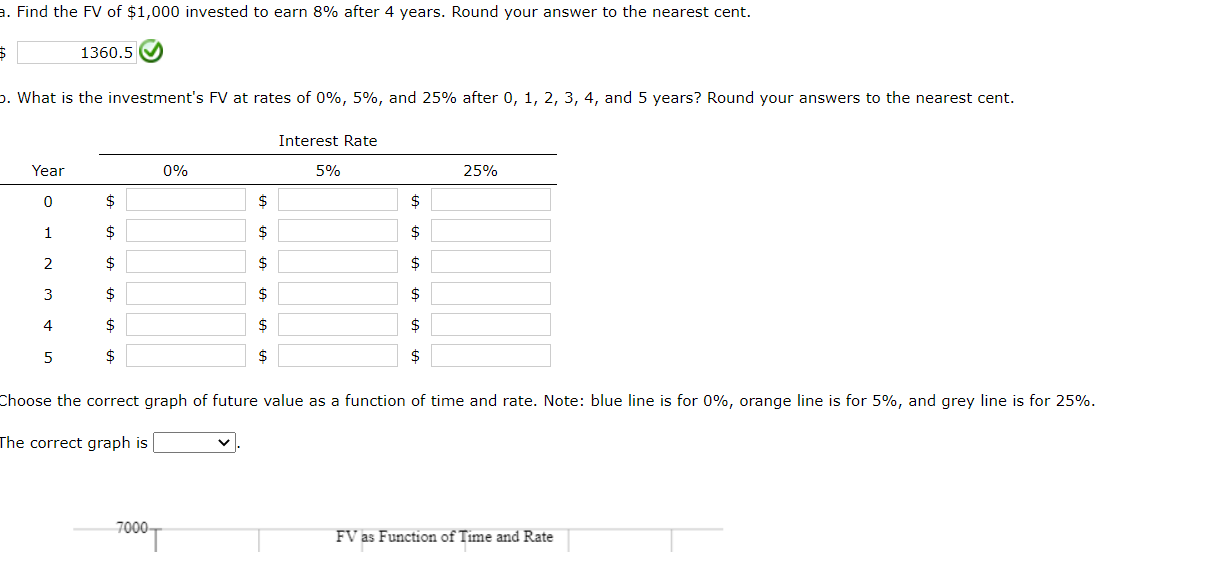
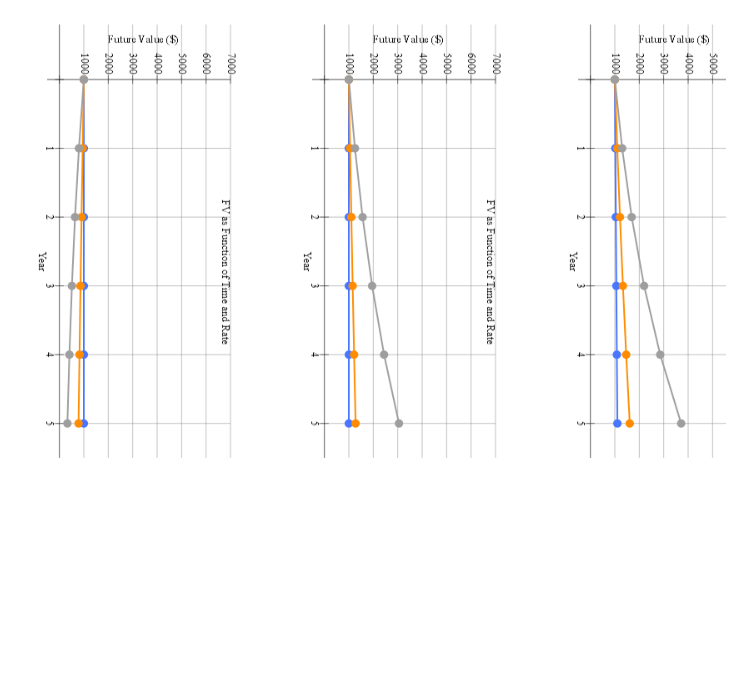
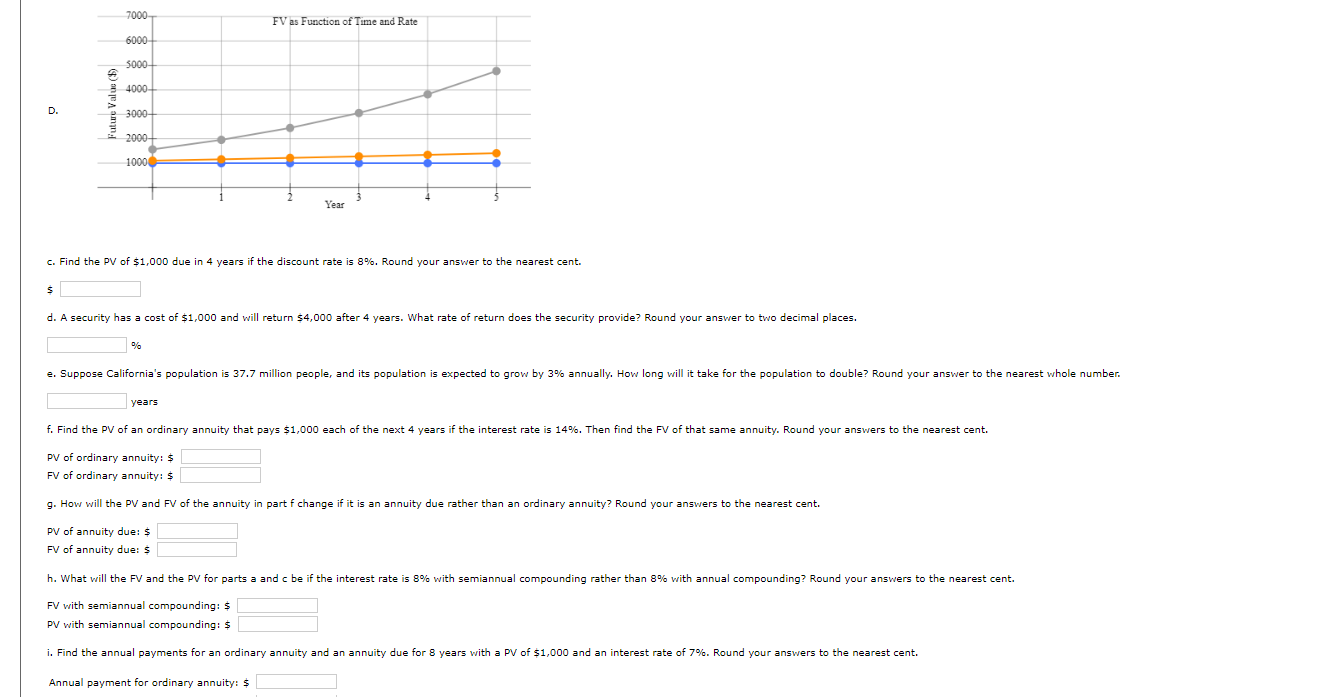
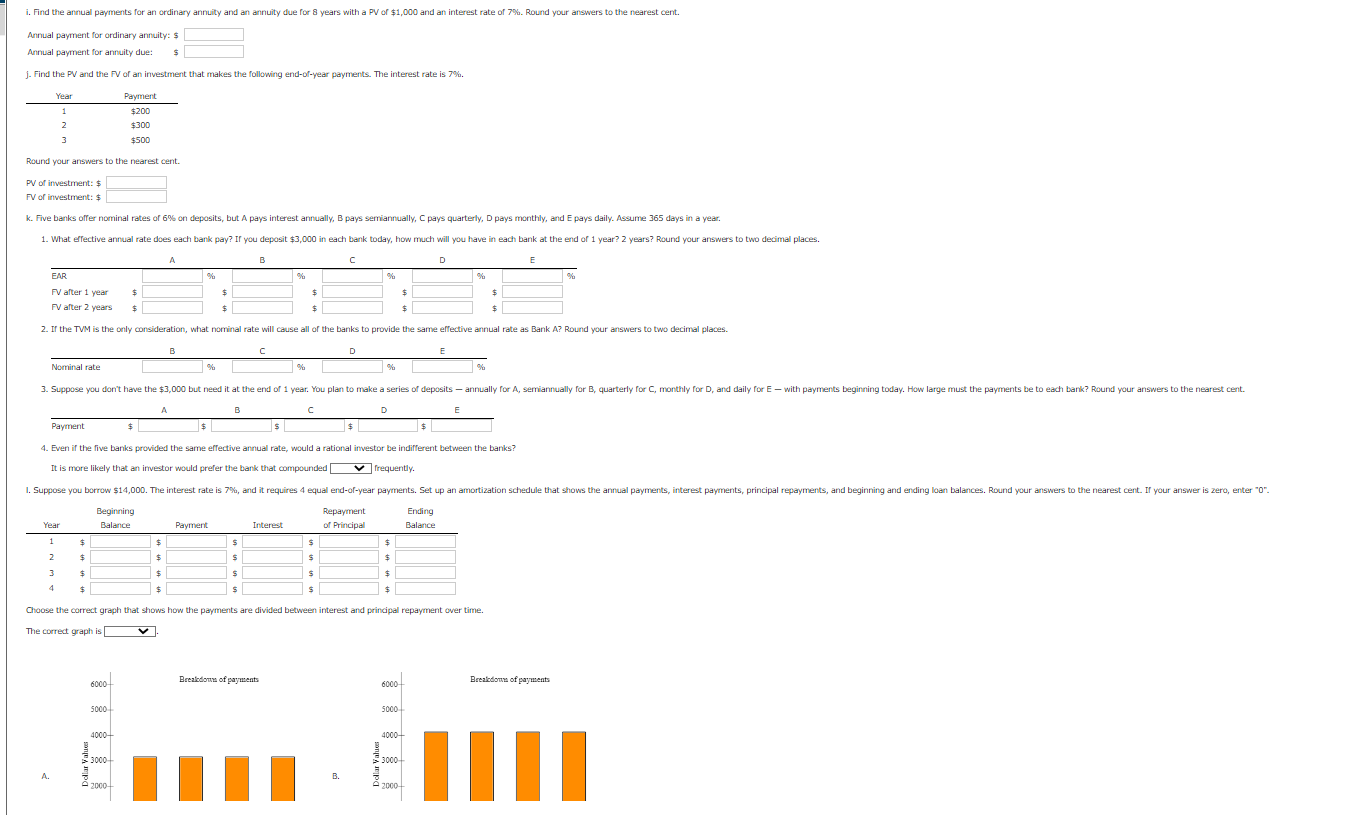
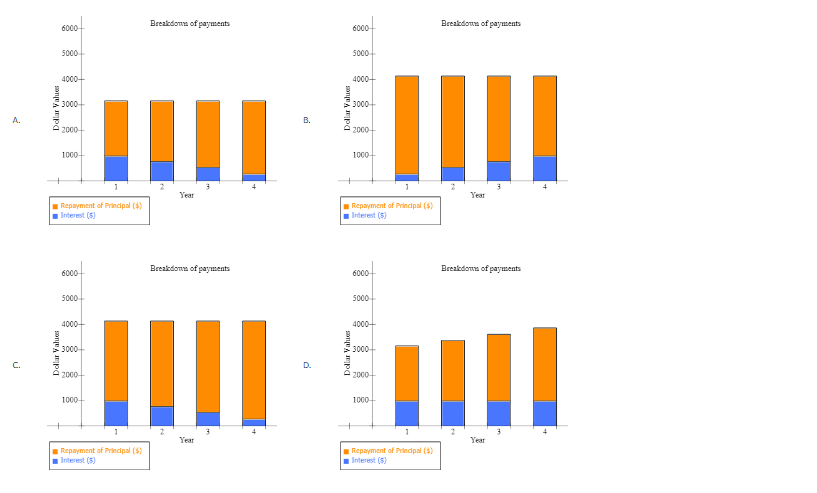
a. Find the FV of $1,000 invested to earn 8% after 4 years. Round your answer to the nearest cent. Dhat is the investment's FV at rates of 0%,5%, and 25% after 0,1,2,3,4, and 5 years? Round your answers to the nearest cent. Choose the correct graph of future value as a function of time and rate. Note: blue line is for 0%, orange line is for 5%, and grey line is 25%. The correct graph is c. Find the PV of $1,000 due in 4 years if the discount rate is 8%. Round your answer to the nearest cent. 5 d. A security has a cost of $1,000 and will return $4,000 after 4 years. What rate of return does the security provide? Round your answer to two decimal places. % years PV of ordinary annuity: $ FV of ordinary annuity: $ g. How will the PV and FV of the annuity in part f change if it is an annuity due rather than an ordinary annuity? Round your answers to the nearest cent. PV of annuity due: $ FV of annuity due: 5 FV with semiannual compounding: $ PV with semiannual compounding: \$ i. Find the annual payments for an ordinary annuity and an annuity due for 8 years with a PV of $1,000 and an interest rate of 7%. Round your answers to the nearest cent. Annual payment for ordinary annuity: $ i. Find the annual payments for an ordinary annuity and an annuity due for 8 years with a PV of $1,000 and an interest rate of 7 . Round your answers to the nearest cent. Annual payment for ordinary annuity: $ Annual payment for annuity due: 5 j. Find the PV and the FV of an investment that makes the following end-of-year payments. The interest rate is 7%. Round your answers to the nearest cent. PV of investment: $ FV of investment: $ k. Five banks offer nominal rates of 6% on deposits, but A pays interest annually, B pays semiannually, C pays quarterly, D pays monthly, and E pays daily. Assume 365 days in a 1. What effective annual rate does each bark pay? If you deposit $3,000 in each bank today, how much will you have in each bank at the end of 1 year? 2 years? Round your 2. If the TVM is the only consideration, what nominal rate will cause all of the banks to provide the same effective annual rate as Bank A? Round your answers to two decimal 3. Suppose you don't have the $3,000 but need it at the end of 1 year. You plan to make a series of deposits - annually for A, semiannually for B, quarterly for C, monthly fo 4. Even if the five banks provided the same effective annual rate, would a rational investor be indifferent between the banks? It is more likely that an ifrestor would prefer the bank that compounded |frequently. I. Suppose you borrow $14,000. The interest rate is 7%, and it requires 4 equal end-of-year payments. Set up an amortization schedule that shows the annual payments, interes. Choose the correct graph that shows how the payments are divided between interest and prindipal repayment over time. The correct graph is A. Brezfolorn of payments B. repayment of Prindpal (\$) Interest (5]. fepayment of Prindpal (\$) C. \begin{tabular}{lll} 60000 \\ 5000 \\ 4000 \\ \hline \end{tabular} D. pepayment of Prindpal (\$) fepayment of Prindpal (\$) nterest (5) Interest
Step by Step Solution
There are 3 Steps involved in it
Step: 1

Get Instant Access to Expert-Tailored Solutions
See step-by-step solutions with expert insights and AI powered tools for academic success
Step: 2

Step: 3

Ace Your Homework with AI
Get the answers you need in no time with our AI-driven, step-by-step assistance
Get Started


